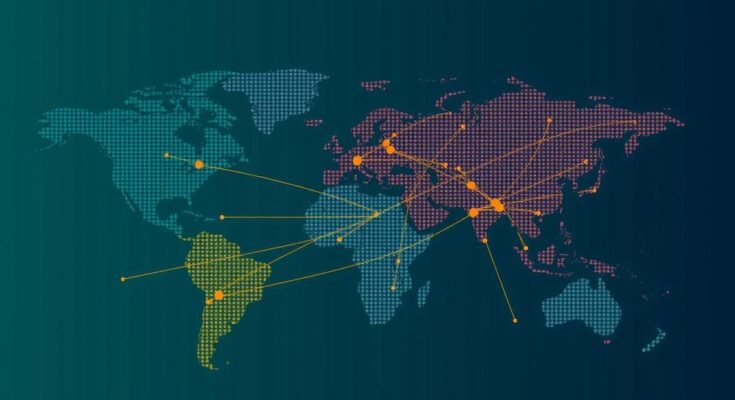The panel at the Freeman Spogli Institute discussed pressing global threats including the rise of authoritarian coalitions, internal challenges to democratic systems, ongoing conflicts like the war in Ukraine, China’s expanding influence, and the realities of climate change. Experts stressed the interconnectedness of these issues and the urgent need for strategic responses to safeguard democratic values and international stability.
In light of the multifaceted global challenges we are currently confronting, the Freeman Spogli Institute for International Studies (FSI) held a panel discussion entitled “Global Threats Today: What’s At Stake and What We Can Do About It” where scholars shared their insights on critical issues ranging from climate change to geopolitical tensions. This event, moderated by Michael McFaul, brought together experts including Marshall Burke, Didi Kuo, Amichai Magen, Oriana Skylar Mastro, and Steven Pifer, who addressed various threats to the international order. The participants emphasized the emergence of a new coalition of authoritarian states, often referred to as the “axis of misery,” which threatens the liberal global order. Amichai Magen highlighted that the collaborative efforts of Russia, Iran, North Korea and their allies aim to dismantle established democratic norms and potentially lead to the destabilization of states such as Ukraine, Israel, and Taiwan. Didi Kuo redirected attention to internal threats to democracy, indicating that many democratically elected leaders are undermining their own systems from within by consolidating power and eroding electoral integrity. She mentioned that recent success stories in countries like Brazil and France demonstrate that with flexible coalitions, pro-democracy forces can counteract these anti-democratic movements. Steven Pifer provided a counter-narrative to the prevailing perception that Russia is winning the conflict in Ukraine, elucidating the enormous costs that Russia is incurring in terms of military losses and stressing the existential nature of the war for the Ukrainian people who remain resolute in their fight for sovereignty. He advocated for stronger support for Ukraine to prevent a potentially emboldened Russia. Oriana Skylar Mastro discussed the long-term challenge posed by China, despite the country’s economic slowdown, urging for a re-evaluation of strategies to counterbalance its growing influence in global affairs. She argued that the competition is not solely between the US and China, but involves how other nations perceive and engage with both superpowers. Lastly, Marshall Burke reviewed progress made in climate change initiatives, reporting a 20% reduction in emissions in the United States since 2005, but cautioned that significant work remains to address the projected warming of two to three degrees Celsius. He underscored the critical need for comprehensive strategies addressing both mitigation and adaptation to climate impacts. In summary, the FSI scholars provided a clarion call for awareness and action regarding the pressing threats that face our world today, encompassing geopolitical threats, internal challenges to democratic integrity, strategic positioning against China, ongoing support for Ukraine, and the urgent need to further climate action for future resilience.
The current geopolitical landscape is fraught with intersecting challenges that threaten both international stability and domestic democratic governance. Recent events such as the aggression from Russia in Ukraine, a rising China, internal threats to democratic institutions, and the ongoing climate crisis have prompted scholars and policymakers to reassess strategies for ensuring global stability. The FSI panel discussion provided a platform for prominent scholars to share their insights into how these dynamics are unfolding and what actions can be taken to mitigate their impacts.
The discourse highlighted by the FSI scholars underscores the importance of recognizing the nuanced interdependencies in global politics. The need for vigilance against both external adversaries and internal threats to democracy is paramount, as is the importance of sustained support for Ukraine and a comprehensive approach to countering the geopolitical ambitions of China. Moreover, progress in addressing climate change must be coupled with adaptive strategies to withstand the inevitable challenges posed by a warming planet.
Original Source: fsi.stanford.edu




